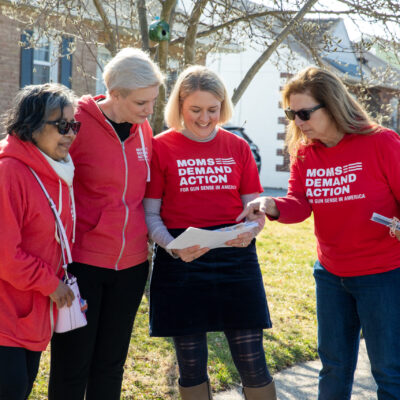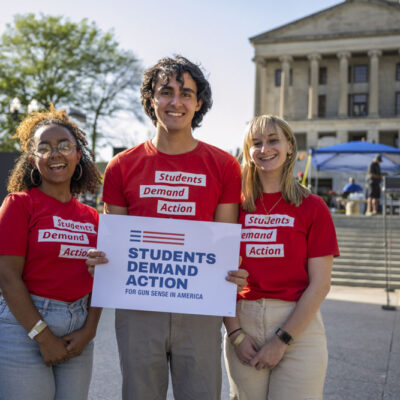Mariam El-Haj was shot by her biological father on June 15, 2012. After surviving extensive injuries, including a gunshot wound to the neck and hand, Mariam set out to make a difference in the lives of others. She is a Moms Demand Action volunteer, the local chapter media lead for the Rio Grande Valley group in Texas, an Everytown Survivor Fellow, and studies psychology with a focus on trauma.
As a therapist, do you have any advice for survivors who may be struggling during these unprecedented times?
Dealing with the pandemic of COVID-19 is quite unique for survivors and people living with Post-Traumatic Stress Disorder (PTSD). The loss of autonomy due to nationwide shelters-in-place can be triggering for people, causing dissociative thoughts and symptoms. Balance would come with grounding, and doing at least one thing everyday that brings you back to your roots or nature. Go for a walk, tend to some plants, meditate. As cheesy as it may sound, those are usually the best tools in helping with dissociative thoughts, and oftentimes feeling needed (such as with tending to some plants, or even…taking care of a pet) really helps validate your existence in a time where we are isolated.
What is your preferred method of self care? Has this changed since social distancing and other restrictions have gone into place?
Self-care varies for the mood and the moment. It can be as simple as making sure you brush your hair and take a shower that day, or as extravagant as buying yourself a new outfit. Although social distancing has made it harder to commit to some acts of self-care that involve being with others, it has also given us the opportunity to be creative with how we can use the resources we are lucky to have in this day and age. Video chats with friends have helped me feel less alone, and although it’s never as good as being in their company, being able to see a friend and talk to them live does wonders for my feelings of connection and love. And those are just some of the many assets of self-care: connection and love.
What do wish people understood about the relationship between mental health and gun violence?
Oftentimes when people think of gun violence and mental health, immediately they think of the perpetrators. What warning signs did they show? Were they depressed or angry? Was it a homicide-suicide? We can often forget about the mental health of survivors of gun violence. Gun violence impacts mental health in ways that include feeling a sense of isolation, like you can’t find many people who relate to your experience. It can cause depressive (even suicidal) thoughts, anxiety, obsessive behaviors, self-esteem issues. It’s very important to recognize this relationship of gun violence and mental health; and in recognizing it, it’s very important to try and prioritize survivors when talking about mental health and guns, uplifting their stories and recognizing the unique tragedy of them.









